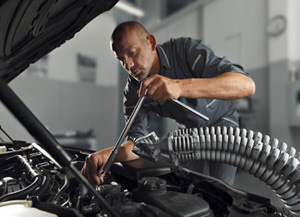New Robotic Arm Mimics Elephant's Trunk
December 29, 2010

Additivemanufacturing is used to build a robotic arm that mimics the trunk of anelephant.
A researchteam from Festo, acontrol and automation specialist, and the Fraunhoferresearch institute received a German technology award for development of theBionic Handling Assistant, which operates with compressed air and includes athree-finger gripper.
There are potentialapplications for the innovation in manufacturing, healthcare and agriculture.
"TheBionic Handling Assistant turns our vision into reality, for the first timeenabling humans and machines to cooperate in complete safety," says PeterPost, head of research at Festo, which is based in Esslingen, Germany."The main innovation lies in the system's unique human-machinecooperation; in the event of a collision with a human, the Assistant's trunkgently moves aside without causing any harm."
The trunk ismade of polyamide (nylon), which weighs considerably less than steel or aluminumassemblies. The trunk is made with a selective laser sintering system from EOS.
The plasticcomponents of the trunk include circularly-arranged pneumatic actuators.
New Robotic Arm Mimics Elephanta euro (TM)s Trunk |
Free movment
MarkusFischer, head of corporate design at Festo, says, "We were originallyfascinated by the structure of the elephant's trunk-it has over 40,000individual muscle fibers and moves freely in all directions. This inspired usto mimic nature, by developing a handling system which goes far beyond anythingcurrently available in industrial automation."
Festoenlisted the support of Andrzej Grzesiak of the Fraunhofer Institute to drivethe project.
Festo is amajor innovator in additive manufacturing technology, which can replicate detailsof many structures found in nature. A laser driven by a CAD file buildsstructures in tiny layers. It allows freedom of design and production notpossible with plastic parts made from molds.
Festo builta "Fast Factory" in Esslingen in 2009 to implement new automation technologiesusing additive manufacturing. Three additive manufacturing approaches are usedthere: selective laser sintering (SLS) of plastic powders, laser melting ofmetals such as aluminum and fused deposition modeling (FDM) for polymerproducts.
The projectreceived a German technology prize called the "Deutscher Zukunftspreis" (GermanFutures Award). Launched in 1997, the prize is the German President's award fortechnology.
About the Author(s)
You May Also Like





.jpg?width=300&auto=webp&quality=80&disable=upscale)
